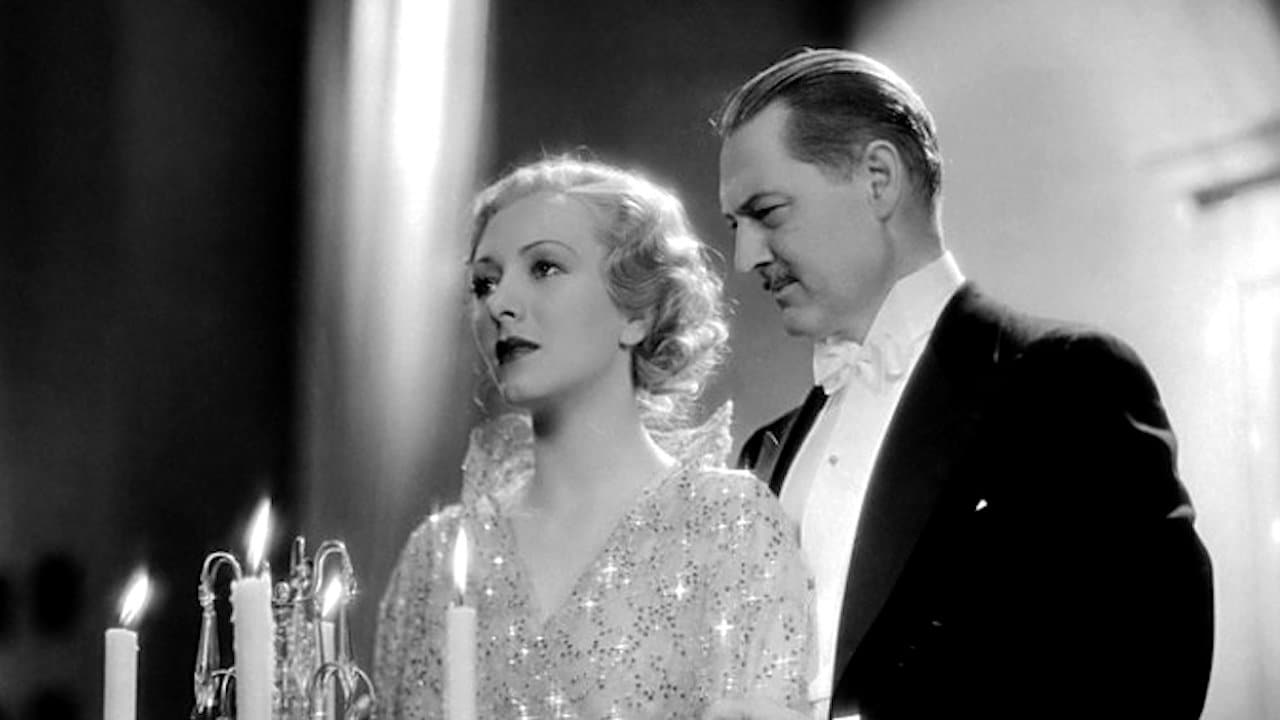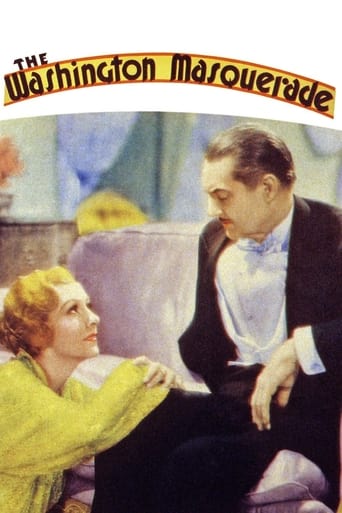


If you are watching the great Lionel Barrymore, then it is not possible for you to be wasting your time. "Washington Masquerade" can be considered a showcase for Barrymore, and he delivers a wide ranging performance for our entertainment. However, I think the most fascinating way to take in this film is to focus on Barrymore's famously arthritic hands. Like a tic that cannot be controlled, these hands never stop moving, restlessly in continuous motion throughout this film. I do not know if this was a conscious decision on the director's part, but those enormous hands, with their lengthy fingers, keep moving, moving, and moving; now sweeping his hair back, now smoothing out his clothes, now grabbing on to his lapels, now wiping or covering his face and brow, the hands are the true stars of this film.Brother John Barrymore may have been known as The Profile, but Lionel should be known as The Voice, the distinctive pitch and tone Lionel's alone. The final scene, in which he delivers a scorching speech to a committee of Congressmen, may be hokey and dated, but it's still an electric performance by the great one.
... View MoreOdd. A couple of our reviewers found this performance by Lionel Barrymore better than his usual. I found it to be uneven. Sometimes a bit of overacting whenever he assumed the part of a talking senator. But, after he begins his fall, he gets quite good. Overall, despite the unevenness, his performance is pretty agreeable, as always. It is interesting to note his arthritic hands in this film, although it was to be quite a while before he was confined to a wheelchair.This film was made in 1932, and is very "old Hollywood". I couldn't help but think how much better a film it would have been had it been made perhaps five years later as pictures became more and more sophisticated.The story rambles a bit. It's good early on and much later, but it the middle it drags a bit. It seems rather absurd that a man as dedicated as the lead character (Barrymore) would resign his Senate seat, even at the behest of his wife under these circumstances.Aside from Barrymore, there are a number of decent performances here...and some not so good. Karen Morley as the schemer and wife who brings the Senator down is fairly good; I was not at all familiar with her from previous pictures. Diane Sinclair, as the adult daughter of the Senator...well, let's put it this way -- it's pretty clear why she had such a minimal career as an actress. Nils Asther. Hmmm...what did Hollywood see in him...perhaps just his good looks.Instead of remaking successful films, I always thought that Hollywood should fix/remake movies like this one. Even today, it could be handled quite well. Worth a watch despite some disappointing aspects.
... View MoreI happened to catch this film just today on Turner Classics, and expected to see Lionel Barrymore perform his usual job of overacting in this 1932 release. Surprisingly, I thought he was perfectly in character as a reformer elected to the U.S. Senate, finding himself entrapped in what still seems common today of becoming a captive of either ego or the compromising pressures of constantly needing funds for reelection. In this case, being a lonely widower, he was trapped by an ambitious and unfaithful woman who married him and then led him to resign his seat for monetary gain in order to keep her. In the end, he redeems himself before an investigative hearing by being brutally honest about his own failings and that of the system.
... View MoreHattie made her screen debut in 1932 as a maid which she would go on to win an academy award for and be type cast. Did she enjoy working as a maid in this project? It could be akin to working as a receptionist in your late 30's, but it pays the bills. Not much entertainment in this film, but interesting nonetheless.
... View More